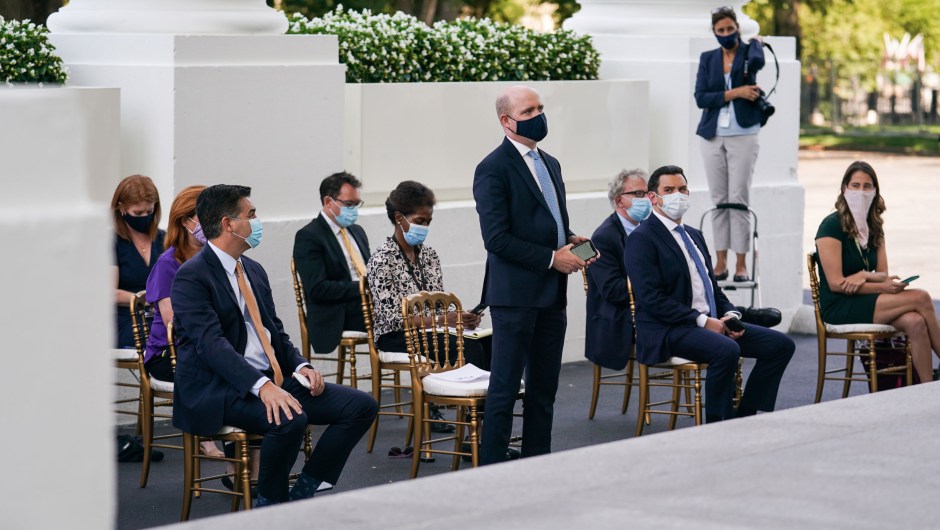Reuters reporter Jeff Mason asks President Donald Trump a question during Monday's press conference (Sarah Silbiger / Reuters).
(CNN) -
At his press conference on Monday afternoon, President Donald Trump had an exchange with Reuters correspondent Jeff Mason, after the journalist failed to remove his mask at the president's request.
The president interrupted Mason when he began to ask the first question, saying, "You're going to have to take that away, please."
Trump pointed to the space between the reporter and the podium, asking, "Are you… how many meters away are you?"
Mason replied that he would speak louder to counteract the effects of the mask.
LEE: Analysis |
Trump's latest attack on mask use may be his worst yet
Trump was not satisfied with the answer, telling the reporter that his voice was "very muffled" with the face covering.
"So if you took it off, it would be a lot easier," he remarked.
Mason raised his voice and repeated his offer to speak louder, asking, "Is this better?"
The president sighed saying, "He's better.
Yes, it is better.
Later in the press conference, Trump commented that a reporter who removed his mask sounded “so clear.
Unlike everyone else, who refuse.
It's not the first time the president has asked a reporter to remove his mask so he can hear a question more clearly, but his disappointment with Mason's response was notable.
coronaviruscovid-19 masks

